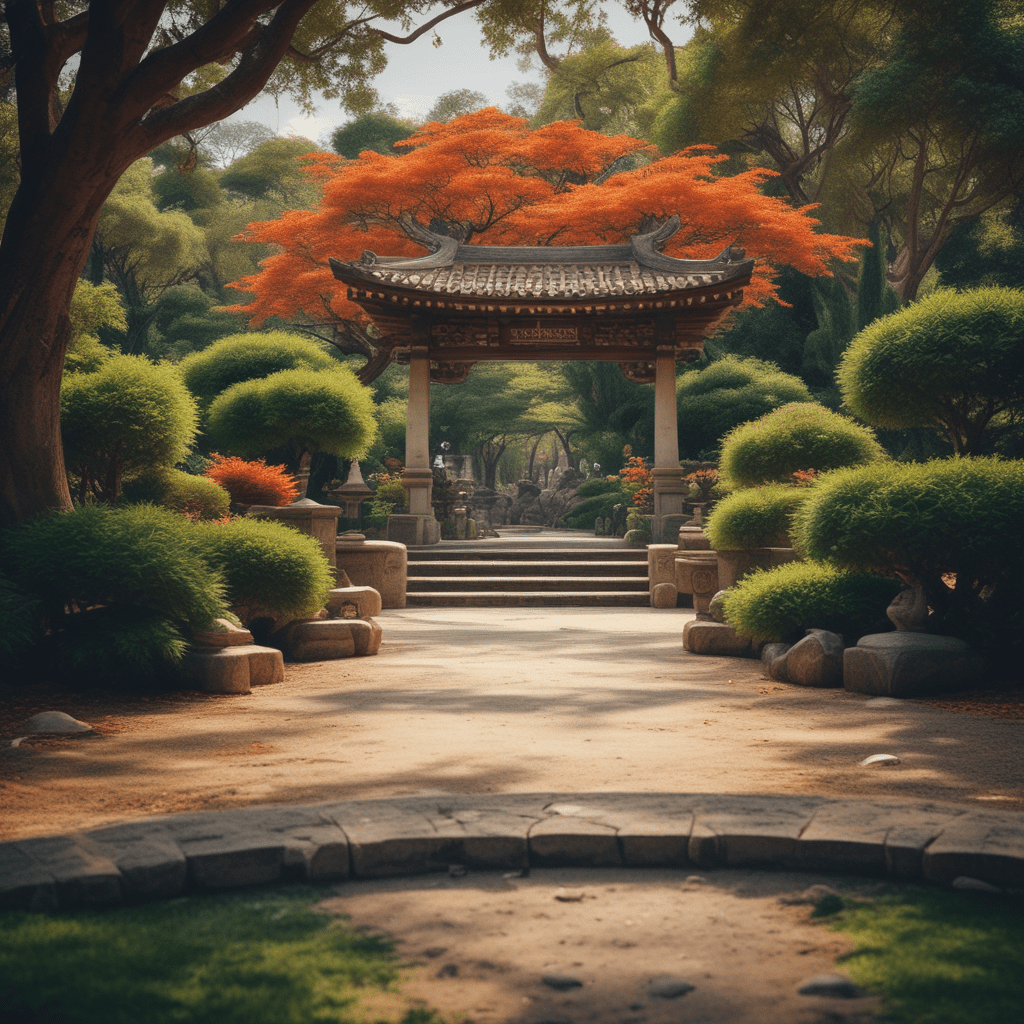A Guide to Visiting the Japanese Garden in Buenos Aires, Argentina
Introduction to the Japanese Garden
Nestled in the heart of Buenos Aires, Argentina, lies the enchanting Japanese Garden, a serene oasis that offers visitors a peaceful retreat from the bustling city life. Here, you can immerse yourself in the beauty of Japanese landscaping and architecture while experiencing a touch of Japanese culture in South America.
Location and Opening Hours
The Japanese Garden is located in the Palermo neighborhood of Buenos Aires and is easily accessible by public transportation. The garden is open to visitors from Tuesday to Sunday, from 10:00 AM to 6:00 PM. Be sure to check for any seasonal variations in opening hours before planning your visit.
Exploring the Garden
As you step into the Japanese Garden, you will be greeted by lush greenery, tranquil ponds, and intricately designed bridges. Take a leisurely stroll along the winding paths to discover hidden corners, picturesque tea houses, and traditional Japanese lanterns. Don’t miss the iconic red bridge, a perfect spot for a photo opportunity.
Activities and Events
The Japanese Garden hosts various cultural events and activities throughout the year, including tea ceremonies, bonsai exhibitions, and traditional music performances. Check the garden’s event calendar to see if any special events coincide with your visit, offering you a deeper insight into Japanese traditions.
Tea House and Souvenir Shop
After exploring the garden, take a break at the charming tea house where you can enjoy authentic Japanese tea and snacks amidst a peaceful ambiance. Don’t forget to visit the souvenir shop to find unique gifts, such as traditional pottery, bonsai plants, and other Japanese-inspired items to remind you of your visit.
Guided Tours and Workshops
For a more in-depth experience, consider joining a guided tour led by knowledgeable guides who can share insights into the garden’s history and design. Additionally, the Japanese Garden offers workshops on ikebana (flower arranging), bonsai cultivation, and calligraphy, allowing you to engage with Japanese art forms hands-on.
Practical Tips for Visiting
Before visiting the Japanese Garden, remember to wear comfortable walking shoes as you’ll be exploring the garden on foot. Consider bringing a camera to capture the beauty of the garden, but be mindful of other visitors. Lastly, respect the tranquility of the space by observing the garden rules and maintaining a peaceful environment for everyone to enjoy.
Whether you are a nature enthusiast, a culture lover, or simply seeking a moment of serenity, the Japanese Garden in Buenos Aires offers a unique experience that combines the best of Japanese aesthetics with Argentine charm. Plan your visit to this hidden gem and bask in the beauty of this harmonious fusion of two distinct cultures.
FAQ: Japanese Garden in Buenos Aires, Argentina
What is the Japanese Garden in Buenos Aires?
The Japanese Garden in Buenos Aires is a serene oasis inspired by traditional Japanese landscapes, featuring lush gardens, ponds, bridges, and architectural elements that offer visitors a peaceful retreat in the heart of Argentina’s capital.
When is the best time to visit the Japanese Garden?
The Japanese Garden in Buenos Aires is enchanting year-round, but the spring months of September to November boast blooming cherry blossoms, making it an ideal time to witness the garden’s beauty in full bloom.
What can visitors expect to see at the Japanese Garden?
Visitors can expect to see meticulously manicured gardens, a picturesque lake with koi fish, bonsai trees, a tea house for traditional ceremonies, and cultural events showcasing Japanese art, music, and cuisine.
Are there guided tours available?
Yes, guided tours are offered at the Japanese Garden in Buenos Aires, providing insightful commentary on the garden’s history, design elements, and cultural significance. Visitors can enhance their experience by joining these informative tours.



